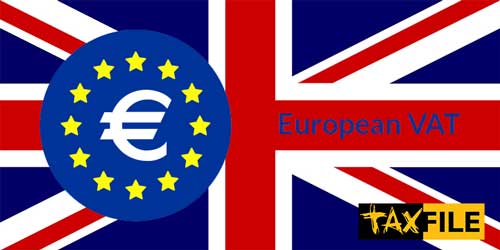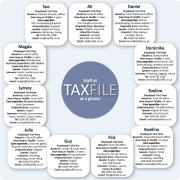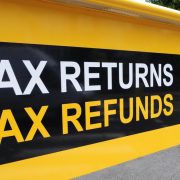EU VAT – The BREXIT Effect

Changes in EU VAT is incoming from 1st July 2021 for Business to Customer (B2C) sales for those operating within the EU. The changes need to also be considered for businesses in the UK, post-Brexit, that wish to sell online directly to the customer.
The new EU VAT E-commerce package is comprised of two key components;
- One Stop Shop (OSS)
- Import One Stop Shop (IOSS)
It is not compulsory to report VAT using either of these methods, the option is still available to register for VAT in each EU country you wish to do trade with and account and pay VAT in each of those territories. However, reading that, you would wonder why you would take on such a task, when you can just do one VAT return, where the liabilities are then paid to each country where the B2C transaction occurred. However, importantly, these 2 methods can only be used for e-commerce customers within the EU.
One Stop Shop
This is a new online portal that allows a business to report sales of goods and services to consumers across the EU.
There are two versions of the OSS:
- Union OSS: businesses that are established in the EU can report VAT on both intra-community distance sales and non-domestic sales of services to EU consumers. It can also be used by businesses established outside of the EU but only for the purpose of reporting intra-community distance sales of goods.
- Non-Union OSS: businesses that are established outside of the EU can use it to report VAT on sales of services to EU consumers only.
The OSS allows a business to report and pay VAT for all B2C sales to each EU destination traded with, in one go.
Import One Stop Shop
As a UK B2C supplier trading in goods with the value of £130 (€150) or less, the IOSS is a valid option to report VAT in the EU traded countries. If you do not use IOSS, then you would charge zero rate at the domestic level and the VAT is applied on import, once the goods are received in the EU country it was destined for. Here, a payment must be paid by the customer (or by you/the business) before the goods are released and delivered to the customer.
Using the IOSS is done to save confusion for the customer so they are aware that what they pay at the point of purchase is the cost of the goods without any additional costs incurred on entry of the goods in the EU country.
IOSS VAT returns must be done monthly and can only be done for goods at the value of or below £130 & its sole purpose is customer satisfaction.
IOSS can be used by businesses established outside of the EU (like the UK), but if a mutual tax arrangement does not exist between the EU and the country (such as the current situation with the UK & EU), then an intermediary must be appointed to act on the businesses behalf. Currently courier companies can act as the intermediary with an additional administrative cost attached for the service.
Other Changes within the EU.
- Distance Selling Thresholds
As of 01/07/2021 the EU place of supply/distance selling thresholds have been completely removed. Prior to this, VAT was only applied to intra-community distance sales if the annual turnover was in access of €35,000 in most EU countries or €100,000 in Germany, Luxembourg, and Netherlands.
Removal of the threshold is the reason why the OSS has now been introduced at the same time.
- Low Value Consignment Relief (LVCR)
Prior to 01/07/2021 imports of goods with values less than €22 are exempt from import VAT, but after this date VAT must be charged on all goods imported, regardless of value.
At the time of this post, the UK government has not as yet provided any guidance on how UK businesses should approach OSS & IOSS.
They have however teamed up with PricewaterHouseCooper (PwC) to provide businesses with a Brexit Support Fund to help with training for the transition. Please see our blog HERE to see if your business can get up to a £2,000 grant to assist you with training to aid with future commerce with EU countries.










